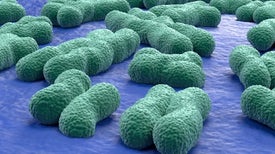
How Can We Trust AI If We Don’t Know How It Works
Trust is built on social norms and basic predictability. AI is typically not designed with either

Trust is built on social norms and basic predictability. AI is typically not designed with either

Drug users must be considered in health and climate preparedness efforts

The U.S. may not beat China at retrieving Martian rocks first, according to an independent review board’s conclusion. But the U.S. can still lead with an exchange of samples here on Earth...

Whether or not UFOs exist, we need to pay attention to how they are influencing our politics and culture

Recognizing that interests are malleable and can be developed can make us more resilient, open and creative

For decades industry has claimed that curbing pollution costs too much, but the reality has proven otherwise. Here we go again, this time on power plant carbon emissions

Climate change is making heat waves stronger and longer. Naming and ranking them like we do with hurricanes will make governments, companies and people take hot days more seriously...

A botched obituary underlines threats from both artificial intelligence and digital plagiarism mills to pollute the news with misinformation

The Y chromosome was once used to label people as criminal. A new complete Y chromosome sequence just might combat this dangerous myth

This is why we misinterpret life’s weird and wonderful random events
Support science journalism.

Thanks for reading Scientific American. Knowledge awaits.
Already a subscriber? Sign in.
Thanks for reading Scientific American. Create your free account or Sign in to continue.
Create Account